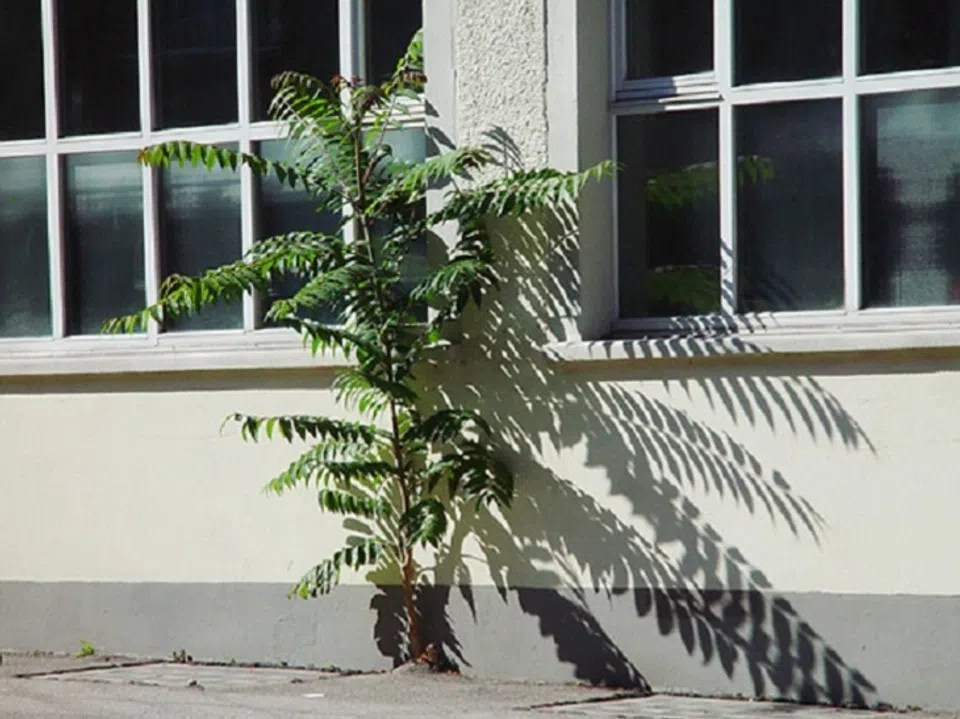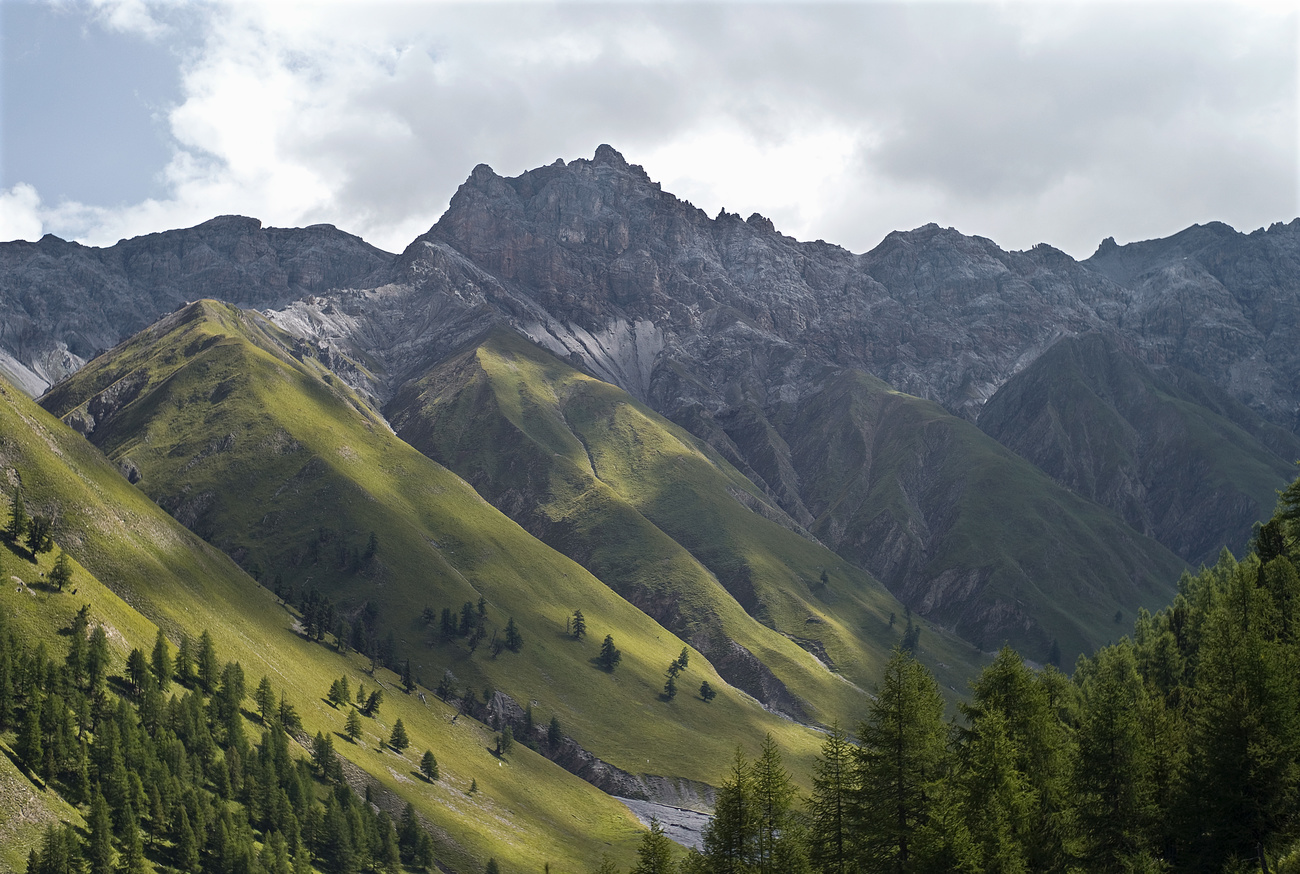Switzerland wants to get rid of tree of heaven

The tree of heaven, Ailanthus altissima, is considered a neophyte in Switzerland, a species recently introduced to the region. However, it is difficult to combat because it is very persistent.
Poor soil, drought or even road salt have little effect on it. Air pollution is not a problem either. And it looks pretty. This is why the tree of heaven was introduced to Europe from China as an ornamental plant in the 18th century.
Today, however, the tree, which can grow up to 30 metres tall, is considered an invasive species. Young trees of heaven grow quickly – two to three metres a year – and spread rapidly. The winged seeds of the female trees are carried away by the wind.
The downside: the undemanding trees displace native species. Another problem, particularly in cities and along roads, is that the fast-growing shoots cause damage to squares and other buildings. Contact with the bark or leaves can cause skin irritation, while the pollen can trigger allergic reactions.

In Ticino, trees of heaven have been spreading for some time. They can also be found in forests there. But the tree is also growing better and better north of the Alps due to the higher temperatures. The government has decided that from September 2024, trees of heaven may no longer be sold or planted in Switzerland.
Cities and municipalities want to remove trees of heaven on their territory, including the city of Baden. However, sawing the trees down with a chainsaw is not a solution. “You can’t just cut down a tree of heaven because it sprouts very strongly from the roots. It’s a shock reaction to the felling,” says Stefanie Wiesinger, environment and nature specialist in the city of Baden. The rootstock therefore produces many new shoots.
Danger for cars and people
In the forest, the trees of the heaven are therefore “curled”. This involves cutting the bark around the entire trunk with a chainsaw. The tree dies over several years without sprouting, as would happen if it were felled.
However, there is a risk of dead branches falling. In a city with cars and lots of people, that would be too dangerous, which is why Baden is testing a different method.
The tree of the heaven on Schadenmühleplatz, a car park, is being cut back considerably these days. “This will prevent the seeds from spreading. Second, the tree is treated with steam,” Wiesinger says. A kind of large fork is stuck into the ground by the roots. This produces steam at 200°C.
“This causes a protein shock in the roots and prevents the roots from sprouting because the cells are damaged. They can’t absorb any new water and the tree dies as a result.”
Tests are now being carried out to determine how often and how hot the roots need to be treated so that the other trees of heaven in Baden can also be controlled.

More
How Switzerland is battling invasive species
Promoting biodiversity
But why are the unwanted trees in Baden only being removed now? For a long time, attempts were made to combat the young trees of heaven in particular, Wiesinger explains. However, this was not enough. The financial and time costs had become increasingly high. That is why they are now tackling the mature female trees.
However, large trees of heaven like the one in Baden are rare. “They are actually important for climate adaptation. And it always hurts when you have to cut down such a large tree.” According to Wiesinger, it is always a balancing act. In addition, new trees are planted in place of the trees of heaven to promote biodiversity.
Translated from German by DeepL/ts

In compliance with the JTI standards
More: SWI swissinfo.ch certified by the Journalism Trust Initiative









You can find an overview of ongoing debates with our journalists here . Please join us!
If you want to start a conversation about a topic raised in this article or want to report factual errors, email us at english@swissinfo.ch.